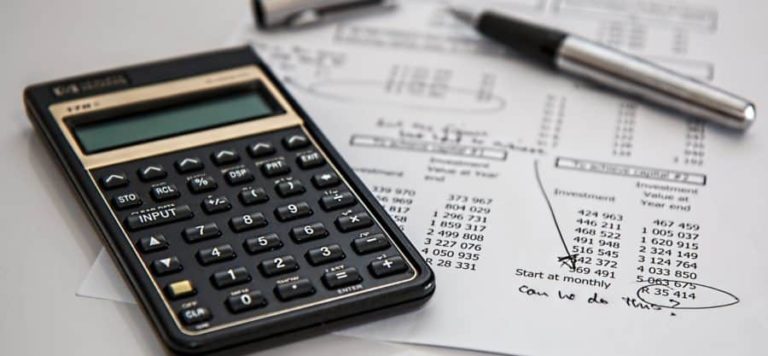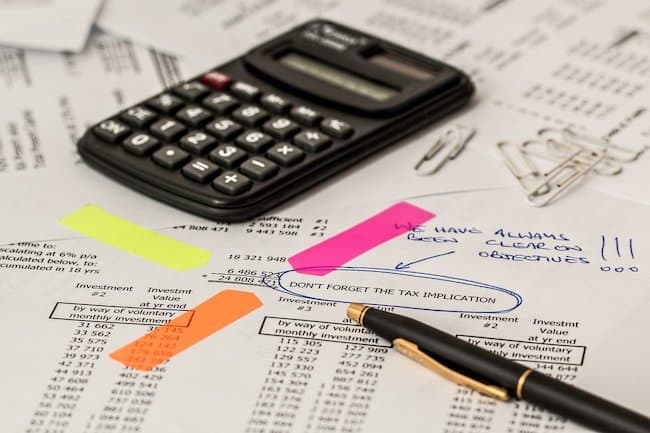
Table of Contents
One of the most common questions small business owners ask is, “What is my business worth?” This article will cover the basic concepts involved in business valuation including common terms you need to know, how they apply to valuing a small business, who can help you when determine the value of your business, and what to expect in the process.

Why should I know my business’s value?
First, it’s important to understand how a valuation can be used. Knowing the present value of your business is useful even if you aren’t trying to sell immediately. Business valuations can give you a starting point from which you can gauge and improve value between now and when you want to sell. Whether you are considering selling your business immediately or beginning to plan an exit strategy for down the road, a business valuation is a worthy investment.
You can perform a business valuation yourself but it is far more meaningful to have a third party, like a business broker, perform your business’s valuation. A business valuation that is performed by a qualified third party is considered more reliable to potential buyers. This can cut down the time spent on negotiating a purchase price and so speed up the sales process for you.
If you do engage a business broker to help determine your business value, understand that a consultation and a valuation are not the same. Often, a formal business valuation is offered for a fee; however, a business broker should be able to meet with you and review your business operations, financial statements, and comparable market listings to provide you an estimated range for the value of your business in today’s market. That initial consultation should be free. If a broker wants to charge for this, find someone else to work with. The consultation is a no-cost, no-obligation service that many business brokers offer as part of our role as consultants to the business community.

What does ‘business value’ really mean?
Every business has several different “values” depending on who you ask:
- What the business owner, seller, believes the business is worth
- What a lender is willing to finance or lend for the purchase of the business
- And ultimately, what a buyer is a willing to pay for the business
The one that’s most important is, of course, what a buyer is a willing to pay for the business (followed closely by what a lender is willing to finance or lend for the purchase of the business). Typically, the Fair Market Value (FMV) of a business meets both of those qualifications. Moving forward, the term ‘business value’ will refer to the FMV of a small business.
Business Valuation Terminology
There are many terms related to business valuation. A few of the most important ones follow. To research additional terms, we recommend the International Business Brokers Association (IBBA) Glossary of Terms.
Valuation: “The act or process of determining the value of a business, business ownership interest or intangible asset(s) using one or more valuation methods” (IBBA). Also referred to as an appraisal, or estimated value.
Fair Market Value: “The price, expressed in terms of cash equivalents, at which property would change hands between a hypothetical willing and able buyer and a hypothetical willing and able seller, acting at arm’s length in an open and unrestricted market, when neither is under compulsion to buy or sell and when both have reasonable knowledge of the relevant facts” (IBBA). Again, when we discuss the value of a business for the purpose of this article, we will assume the valuation is FMV.
Seller’s Discretionary Earnings (SDE): “The earnings of a business enterprise prior to the following items: income taxes, non-operating income and expenses, nonrecurring income and expenses, depreciation and amortization, interest expense or income, one owner’s entire compensation, including benefits and any non-business or personal expenses paid by the business” (IBBA). Also referred to as Discretionary Earnings (DE) and Seller’s Discretionary Cash Flow (SDCF).
EBITDA: “Earnings of a business prior to interest (expense or income), income taxes, depreciation and amortization expenses” (IBBA). In the valuation of small businesses, we typically assume a buyer will replace an owner-operator seller and therefore value the business based on SDE instead of EBITDA. Larger transactions, institutional buyers, and private equity groups will typically value a business using EBITDA since they will hire a manager to replace the business owner in the operations management role and there will be a salary associated with the replacement manager.
Add-Backs: “All or a portion of expenses that are added back to net income in an effort to place the figures as close as possible to the economic earnings that were actually derived from the business” (IBBA).

Valuing a Small Business
There are many business valuation methods and not all methods apply to all types of businesses. Depending on the size of your business, the revenue your generate or the industry that you are in, you may use EBITDA rather than SDE. Small business value is associated with SDE.
To perform a small business valuation, the first thing that must be done is gather the proper financial statements. The last three years of tax returns will need to be reviewed, as well as the last three years of profit and loss statements and a current year-to-date profit and loss statement.
The Net Profit/Loss and the Taxable Income lines of the financial statements are the starting point; however, this typically does not reflect the true value or benefit of the business to the owner (which is why they’re the starting point of your business valuation).
The financials will need to be recast to determine the Seller’s Discretionary Earnings (SDE) term as defined above. To do this, certain add-backs will be applied to the Net Profit/Loss or Taxable Income. Some add-backs will be pretty standard while others vary widely by the individual business, industry, and accounting principles used in the business’s operations.
Standard add-backs for Seller’s Discretionary Earnings (SDE) include Owners Salary, Owner’s Benefits, Depreciation, Amortization, Interest Expense/Income, Non-Operating Expenses/Income, One-Time or Non-Recurring Expenses/Income.
Other add-backs may include Legal Fees, Accounting Fees, Professional Fees, Legal Settlements, Personal Expenses (Travel, Meals/Entertainment, Vehicles, Telephones, Rent, Utilities, etc.)
Once Seller’s Discretionary Earnings (SDE) is calculated, a Cash Flow Multiplier (or SDE Multiplier) is applied. The multiplier is derived from an evaluation of the business’ operations, market/industry conditions, competitive advantages, competition, condition of business assets (meaning both tangible assets and intangible assets), customer makeup, employee tenure and many other factors. (These multipliers are sometimes referred to as ‘rule of thumb’ multipliers.) This will also be cross referenced with comparable businesses currently listed in the market.
After the multiplier has been applied, the value of Furniture, Fixtures and Equipment (FF&E) at current market value will be added along with the value of any Inventory at cost, to determine the business’s value.
A note about inventory: inventory, like other business assets, are vital to the sale of a business. It should be kept in mind that the value of inventory in a business’s sale is less than at retail; a buyer has to sell that inventory to customers after they takeover the business. If they paid you the retail value, they’d have to turn around and mark that inventory up even further to their customers in order to turn a profit.
Sample Business Valuation
Once you have the correct information and reports, the valuation process can be applied. Take a look at the sample below to see the process in action.
NEO Business Advisors is Here to Help
NEO Business Advisors is here to help. At NEO Business Advisors, we have our pulse on the market. Because of our relationships with accountants, attorneys, and lenders, we can see the broader picture of what’s happening in the market across industries, competitors, customers, and the supply chain. Now, more than ever, it’s important for small business owners to understand the business’s present value in order to make long term decisions. Contact us today so we can put our expertise in business valuation to work for you.
